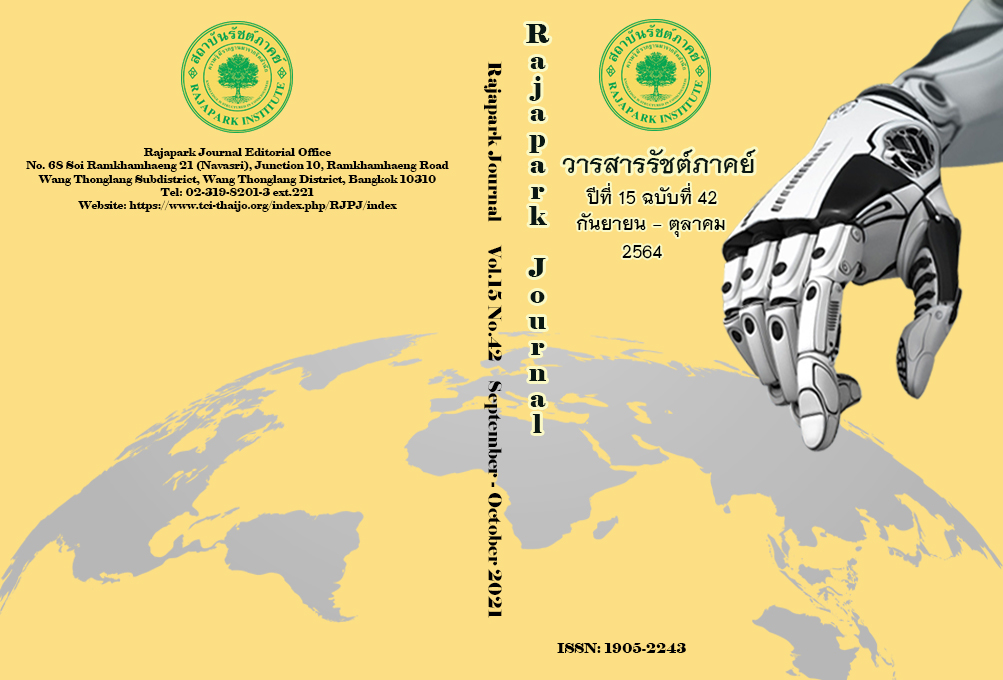Political Culture: An Indicator of the Democracy Government
Main Article Content
Abstract
This paper aimed to study the political culture of the democracy governance which is the significant root of the politics and governance as well as the civic culture affecting the stability of the democracy. Based on the related documents and literature review, the indicators of the democracy governance were consisted of 5 aspects which were 1) the foundation of liberty and human rights, 2) the contribution and participation of people, 3) the rule of law, 4) decentralization, and 5) the promotion of the social responsibility respectively. In order to promote the stabilization of the democracy governance, to provide the political institution and its structures, to have its constitution, and to promote the citizens’social responsibility as well as their awareness of the politics were essential to be considered.
Article Details
Views and opinions appearing in the Journal it is the responsibility of the author of the article, and does not constitute the view and responsibility of the editorial team.
References
Becker, P., & Raveloson, J. A. A. (2008.). What is Democracy?. The Friedrich-Ebert-Stiftung (FES) Press, Friedel Daiber (University of Trier) Translation from French by Andriakamelo Rarivoarisoa Alice with Approval by KMF-CNOE & NOVA STELLA.
Bunthong, T. (2016). Democracy: Direction for Sustainable Development (Individual Study). Constitution College Institute of Constitution Studies, Office of the Constitutional Court.
Faulks, K. (2000). Political Sociology: A Critical Introduction. New York: NYU Press.
Fukuyama, F. (1992). The End of History and the Last Man. London: Hamilton.
Gabriel, A. A. (1956). Comparative Political Systems. The Journal of Politics, 18(3), 391-409.
Gabriel, A. A., & Verba, S. (1963). The Civic Culture: Political Attitudes and Democracy in Fives Nations. Boston: Little, Brown & Company.
Gilman, H. R. (2016). Democracy Reinvented: Participatory Budgeting and Civic Innovation in America. Brookings Innovative press/Ash Center.
iLaw. (2014). Indicators of Democracy with “Thai” Democracy. Retrieved April 11, 2021, from https://ilaw.or.th/node/3275
Kanjanasuwan, W. (2005). Political Culture and Participation in Thai Politics. Teaching Document, Course Series: Problems of Thai Political Development. Department of Political Science, Sukhothai Thammathirat Open University. Nonthaburi: Sukhothai Thammathirat Open University.
Ketsuwan, R. (2006). Principles of Political Science. Bangkok: Bophit Printing.
Meyer, M. (2011). Democracy Reporting International (DRI), International Consensus: Essential Elements of Democracy. The Office for the Promotion of Parliamentary Democracy of the European Parliament.
Nakata, T. (2000). Thai Democracy. Bangkok: National Institute of Development Administration.
Panyarachun, A. (2015). Democratic Governance - A New Normal to Strive. Bank of Thailand Academic Seminar 2015. Retrieved April 11, 2021, from https://www.pier.or.th/wpcontent/uploads/2015/09/Democratic-Governance-A-New-Normal-to-Strive-For.pdf
Promgird, P. (2013). Political Sociology (2nd ed.). Khon Kaen: Khon Kaen University.
Sittilert, K. (2008). Thai Political Culture: Indicators of Democracy. Liberal Arts Review, 3(5), 76-84.
Sririn, W., & Promgird, P. (2019). Political Culture and Stabilized Democracy: A Political Sociology Perspective. In Proceedings of 15th International Conference on Humanities and Social Sciences 2019 (IC-HUSO 2019) (Pp. 672–686). Faculty of Humanities and Social Sciences, Khon Kaen University, Thailand.
www.guru.sanook.com. (2013). Democracy. Retrieved April 11, 2021, from https://guru.sanook.com/3872/
www.Stock2morrow.com. (2019). Abraham Lincoln, The Great Leader!!! People's Government by the People and for the People. Retrieved April 11, 2021, from https://www.stock2morrow.com/article-detail.php?id=1907


